Intel Core i9-13900K
Rated: 9/10
Intel Core i9-12900K
Rated: 8/10
Pros And Cons
| GPU | Pros | Cons |
|---|---|---|
| Core i9 13900K | ✅ Better overall performance ✅ Higher Clock Speeds | ❌ Overpriced ❌ Higher Temperature Levels |
| Core i9 12900K | ✅ More Power Efficient ✅ Lower Thermal Levels | ❌ Lower L2, L3 Caches ❌ Lesser Cores & Threads |
- In terms of just the FPS figures at 1440p ultra settings, we experienced that the i9-13900K managed to outperform the i9-12900K by an average of 13.45%.
- Moreover, the i9-12900K outperformed the i9-13900K, consuming about 12.25% less power on average. Also, the i9-13900K showed an increase in temperature of about 4.25% compared to the i9-12900K.
- Speaking of the prices, the Core i9 12900K is about 50% cheaper than the Core i9 13900K, when we researched about them in the current marketplaces.
- We recommend the i9 13900K for users eyeing for premium performance in their gaming. However, those targeting a powerful processor at a lower price and lower maintenance costs should consider the Core i9 12900K.
Comparison Table
| Technical Specs | Intel i9-13900K | Intel i9-12900K |
|---|---|---|
| Socket | Intel Socket 1700 | Intel Socket 1700 |
| Codename | Raptor Lake-S | Alder Lake-S |
| Memory Support | > DDR4-3200 MHz > DDR5-5600 MHz > Dual-channel | > DDR4-3200 MHz > DDR5-4800 MHz > Dual-channel |
| ECC Memory | Yes | No |
| PCI-Express | Gen 5, 16 Lanes (CPU only) | Gen 5, 20 Lanes (CPU only) |
| L1 Cache | 80K (per core) | 80K (per core) |
| L2 Cache | 2MB (per core) | 1.25MB (per core) |
| Die Size | 257 mm² | 215 mm² |
| tCaseMax | 72°C | 72°C |
| tJMax | 100°C | 100°C |
| Integrated Graphics | UHD Graphics 770 | UHD Graphics 770 |
| Release Date | Sep 27th, 2022 | Nov 4th, 2021 |
| MSRP | 589 USD | 599 USD |
| Best Motherboards | BEST Motherboards For i9-13900K | BEST Motherboards for i9-12900K |
| Best Cooler | Best CPU Coolers For i9-13900K | Best CPU Coolers For i9-12900K |
Architectural Differences
- Process Node: The Core i9 13900K is based on a 10nm manufacturing process for the logical part of its cores, whereas the Core i9 12900K uses the same 10nm process node, which reflects its subpar node size.
- Core Count and Threads: The Core i9 13900K has a total of 24 cores, while the Core i9 12900K has 16 cores. In terms of threads, the Core i9 13900K also has an advantage with 32 threads compared to the Core i9 12900K’s 24 threads.
- Cache Size: Both processors have an L3 Cache, but the Core i9 13900K has a slightly larger cache size at 36MB (shared) compared to the Core i9 12900K’s 30MB (shared).
- Clock Speeds: The Core i9 13900K has a base clock speed of 3.5 GHz and can boost up to 5.3 GHz with Intel’s Thermal Velocity Boost technology. On the other hand, the Core i9 12900K has a lower base clock speed of 3.2 GHz but can boost up to 5.0 GHz with Intel’s Turbo Boost Max Technology.
- TDP: In terms of power consumption, the Core i9 12900K has a thermal design power (TDP) of 125W while the Core i9 13900K has a slightly higher TDP of 135W. This means that the Core i9 13900K may run slightly hotter and require more cooling compared to the Core i9 12900K.
In this guide, we will compare the Core i9-13900K vs Core i9-12900K across all categories and figure out how much has changed in the new generation. From their architectural differences to their gaming benchmarks, we will go through everything, starting with their fundamentals.
Gaming Benchmarks
Now that the detailed specifications and the differences have been laid out, in this section, we will analyze the Core i9-13900K vs Core i9-12900K gaming benchmarks to figure out how much better the i9-13900K is and if it is worth the upgrade.
- CPU: Intel Core i9 13900K | Intel Core i9 12900K
- MOBO: GIGABYTE Z690 AERO G
- RAM: Corsair Vengeance DDR-5 32GB RAM 5600Mhz (2X 16GB) – CL36
- CPU Cooler: Arctic Liquid Freezer II 360mm
- PSU: ENERMAX REVOLUTION D.F. X 1050W
- Storage: Sabrent Rocket 4 Plus G 2TB
- Resolution: 1080p
Cyberpunk 2077

- In Cyberpunk benchmarks, the core i9-13900K is in the lead at 121 FPS. Meanwhile, the i9-12900K is also not too behind by running at 111 FPS. Overall, that’s about a 9% lead for the newer CPU.
- Additionally, the i9 12900K exhibited better 1% lows, maintaining around 134 FPS, compared to the Ryzen’s lows hovering closer to 127 FPS.
Spider-Man

- Again, the i9-13900K is leading in sheer FPS figures by running the game at 141 FPS. Its predecessor, the i9-12900K, is about 16.5% behind at 121 FPS.
- However, when it comes to 1% lows, the i9-12900K is performing better with an average of 135 FPS compared to the i9-13900K’s 130 FPS in our tested benchmarks.
Counter-Strike: Global Offensive

- With an FPS difference similar to what we saw in Spider-Man, the i9-13900K is leading by running CSGO at 726 FPS. Comparatively, the i9-12900K is about 17.8% behind at 616 FPS. So far, a lead of ~17.8% is the biggest we have seen.
- Despite the advantageous FPS figures, the i9-13900K once again falls behind in 1% lows. The 12900K averages 680 FPS, while the 13900K offering hovers around 640 FPS.
Red Dead Redemption 2

- Without any doubts, the i9-13900K has yet again outperformed its predecessor with a 17.3% margin. The i9-13900K is running the game at 115 FPS, while the i9-12900K is just a shy short of 100 FPS at 98 FPS.
- This time, the 1% lows also show a significant difference with the i9-13900K averaging at 89 FPS and the i9-12900K at 78 FPS.
God Of War

- The i9-13900K is running God of War at around 140 FPS, while the i9-12900K stays a bit behind at 123 FPS. Overall, the i9-13900K is leading again with about 13.8% more FPS.
- However, when it comes to 1% lows, the difference is not as prominent with only a 3 FPS margin between the two processors. This tilts the scales towards the i9 13900K by a small proportion.
Hitman 3

- The i9-13900K is running Hitman 3 at 120 FPS. On the other hand, the i9-12900K is running at 113 FPS. Overall, that’s a difference of about 6.1%.
- However, when it comes to 1% lows, there’s only a 2.6% difference between them. This shows that both processors are still able to handle the game smoothly.
Horizon Zero Dawn

- We were not surprised when the i9-13900K ran Horizon Zero Dawn with 10.4% more FPS at 138 FPS. Comparatively, the i9-12900K is running at 125 FPS, making its successor a much better chipset.
- However, once again, when looking at 1% lows, the difference is not as significant with only a 3.7% margin between them, with the 13900K at the front.
The Witcher 3

- Again, the i9-13900K is outperforming the i9-12900K with about 16.7% more FPS. Overall, the i9-13900K is running at 153 FPS, whereas the i9-12900K is running at 131 FPS.
- However, when looking at 1% lows, the difference is around 5.5%, indicating that both processors are still able to handle this game with ease.
Overall Gaming Performance
| Processor | Average FPS | 1% Lows |
|---|---|---|
| Core i9-13900K | 📈 206.75 | 📉 122 |
| Core i9-12900K | 📈 184 | 📉 109 |
| Winner: Intel Core i9-13900K | ||
When we observed the overall gaming framerates, we saw that on average, the i9-13900K stayed ahead of the i9-12900K by 13.45% in terms of just the FPS figures, making it a solid upgrade over its predecessor. Concluding the overall gaming performance, the i9-13900K is the superior chipset.
Power Consumption
| Games | Intel Core i9-13900K (W) | Intel Core i9-12900K (W) |
|---|---|---|
| Average Power Consumption | 132⚡️ | 121⚡️ |
| Winner: Intel Core i9-12900K | ||
On another front, the i9-13900K was less power efficient than the i9-12900K, as it consumed about 12.25% more power in our gaming benchmarks. With that said, both the i9-13900K and the i9-12900K can be powered by the same PSU. However, the i9 12900K will cost you less in terms of power draws.
Thermal Efficiency
| Games | Intel Core i9-13900K (W) | Intel Core i9-12900K (W) |
|---|---|---|
| Average Thermal Capacity | 76.6 🌡️ | 80 🌡️ |
| Winner: Intel Core i9-12900K | ||
Regarding thermal efficiency, the i9-13900K performed slightly better than its predecessor. While both processors ran at similar temperatures during idle and light workloads, the i9-13900K showed a 4.25% decrease in temperature under heavy load. This could be attributed to the production process and improved thermal management.
Pricing And Availability
| GPU | MSRP | Current Price |
|---|---|---|
| Intel Core i9 13900K | 💲699 | 💲500 |
| Intel Core i9 12900K | 💲699 | 💲333 |
| Difference | 0% | 50.15% |
If we talk about better value for money, it has to be the i9-13900K. That’s because, for about 50% more, you get a cutting-edge chipset packed with all the bells and whistles of Intel’s Raptor Lake technology. While most gamers going for a Core i9 processor won’t be on a tight budget, it is good to know which processor is better value for money.
Core i9-13900K vs Core i9-12900K – Which One Should You Go For?
Intel Core i9 13900K: if you’re planning to build an Intel CPU with the highest-end chipsets, then there’s no reason to skip the i9-13900K. The processor has an enormous number of cores, attaining huge multi-thread performance gains. The i9-13900K is also better suited for heavy multitasking like video editing and rendering.
Intel Core i9 12900K: On the other hand, the Core i9-12900K offers slightly lower specs and performance at a lower cost. However, it still falls short compared to its sibling processor. The only reason to go for an i9-12900K is if you’re planning to save some bucks. The i9-12900K is still a beast of a processor, offering solid performance.
Overall, if you’re looking to purchase a processor right now, we recommend you should go for the i9-13900K. However, if you can wait a bit, you should observe how much the prices of the i9-12900K go down; the chipset might offer better value for money, with its good results and a decent price falling in your budget.
Thank you! Please share your positive feedback. 🔋
How could we improve this post? Please Help us. 😔
[Comparisons Expert]
Abdemanaf is a skilled creative writer who has been honing his craft since 2011. While initially working in different fields, he found a passion for technology and has been exploring the tech world since early 2015. Over the years, he has developed an in-depth knowledge of the latest tech trends and product offerings by various companies.
Abdemanaf’s writing reflects his analytical mindset and ability to think critically. He has a knack for breaking down complex technical information into easily digestible pieces, making his articles engaging and accessible to readers from all backgrounds. In February 2022, he joined Tech4Gamers as a blog and product comparison writer, where he has been able to hone his skills further.
As a writer, Abdemanaf is dedicated to staying up-to-date with the latest technological advancements and trends, enabling him to provide readers with the most relevant and accurate information. He is always eager to learn more and is constantly seeking new challenges to improve his skills.
Get In Touch: manaf@tech4gamers.com


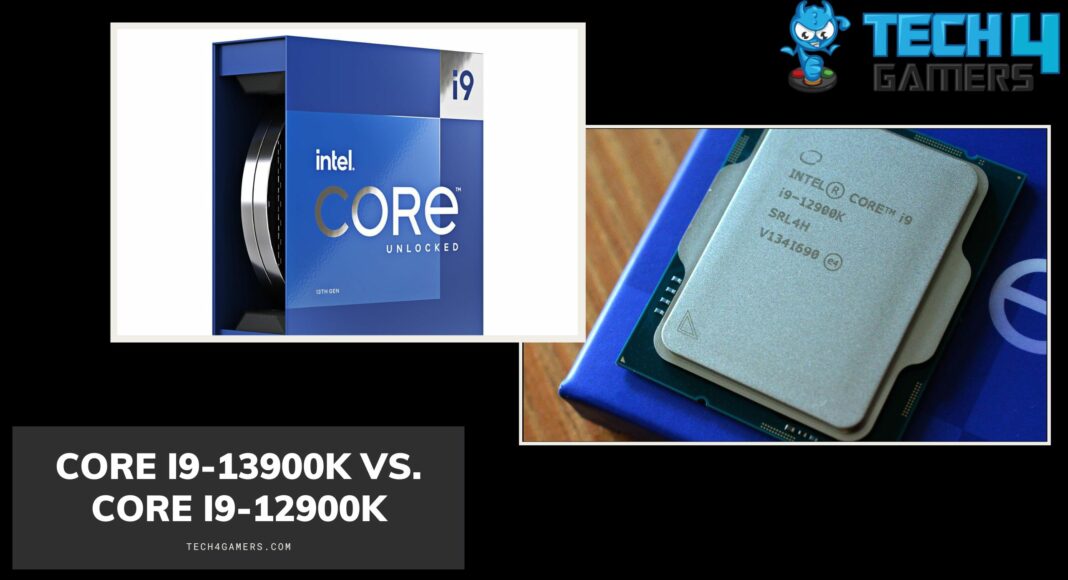
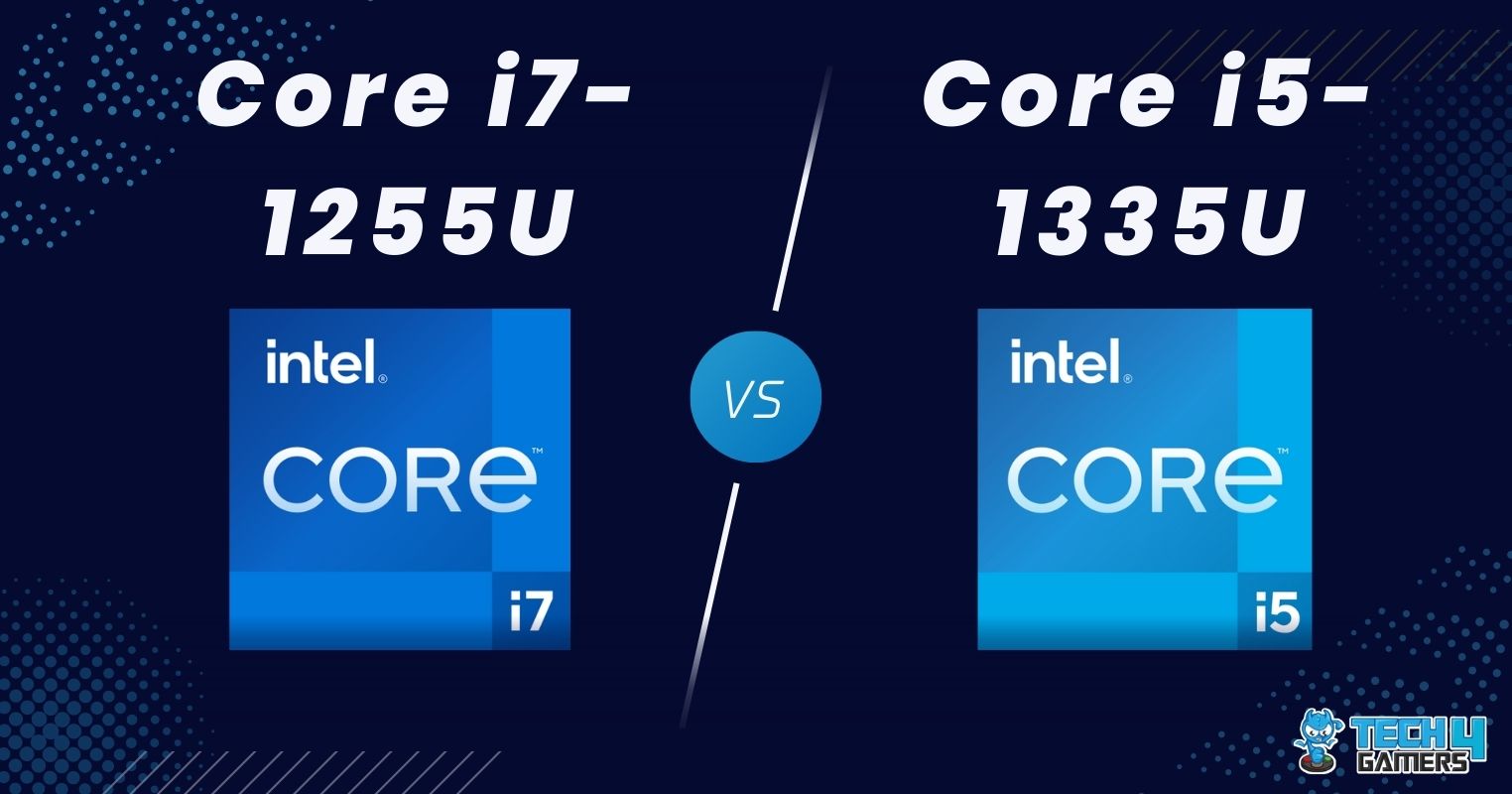
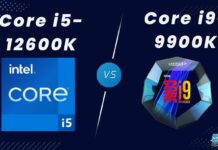
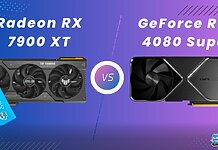
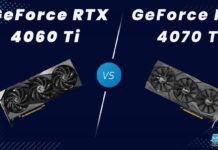
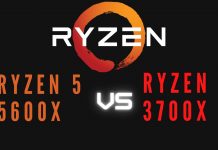
Feedback By: